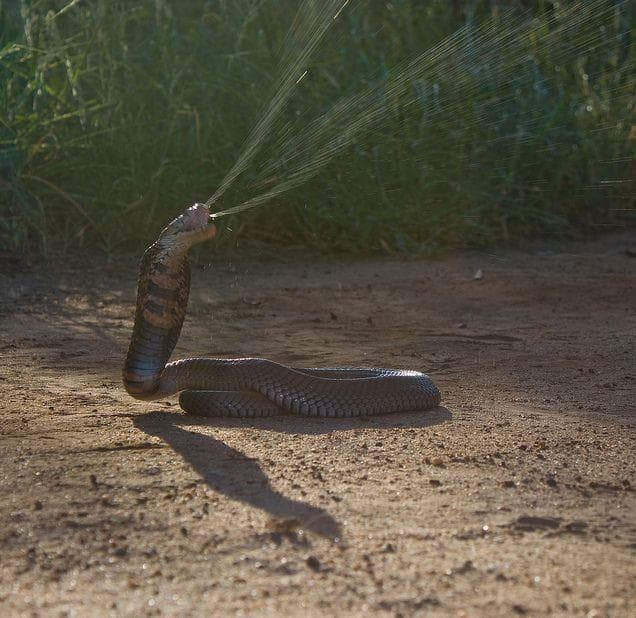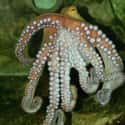-
(#9) Octopuses Love Being Alone
Usually, octopuses only get together for mating season. They prefer to be alone. In fact, because they are feisty and competitive, octopuses in captivity are generally kept in separate tanks. In public aquariums, young octopuses are often raised behind glass dividers of other animals on display.
Source: Facts Legend -
(#5) Octopuses Are Camouflage Experts
Octopuses are able to change the color of their entire body in three-tenths of a second. All cephalopods have skin that has three layers. The top outermost layer contains cells called chromatophores, which detect signals from underlying nerves and muscles and change color accordingly. Chromatophores contain red, orange, yellow, brown, and black pigments surrounded by muscles. The middle layer contains mirror-like cells called iridophores that instantaneously reflect the brightness of the animal's environment.
This is not thought to be conscious; in fact, cephalopods are believed to be colorblind! The bottom layer of skin contains white cells that provide contrast to the colors and patterns of the outer layers.
Source: Live Science
-
(#10) Octopus Arms Have Minds of Their Own
Two thirds of an octopus's neurons are spread out among its arms. This allows each arm to work on separate tasks while others - and other body parts - are doing something else. Each arm is thought to have nociceptors that cue it to withdraw from stimulus that could be dangerous, even while exploring the unknown.
Source: Smithsonian -
(#13) Octopuses Can Regrow Their Arms
Octopuses have the ability to regrow severed arms. Research suggests this is due to an influx of the acetylcholinesterase protein, which is produced during the regrowth process.
Source: Scientific American -
(#1) Octopuses May Change Colors When They Dream
Scientists aren't certain whether octopuses dream when they sleep (and, even if they do, whether their dream state is anything like a human's), but Heidi the octopus made a strong case for her species when she was recorded sleeping in an episode of the PBS documentary series Nature.
In the film, the unconscious Heidi is seen twitching her tentacles, flexing her mantle, and shifting through a cascade of vibrant colors and patterns. Over the footage, marine biologist Dr. David Scheel is heard theorizing that Heidi may be dreaming about catching and eating a crab. "It's a very unusual behavior to see the color come and go on her mantle like that," he says. "You don't usually see that when an animal's sleeping."
Humans are still far away from understanding the cephalopod mind, so whether Heidi is truly dreaming or not remains speculation. Scheel has noted that the explanation for her colorful display may be much simpler: her color-changing cells could be activated by her nocturnal muscle twitches.
Neuroethologist Daniel Margoliash has suggested that animals with complicated nervous systems may need to dream to regulate their experiences and memories. In the Heidi video, Margoliash says it appears that Heidi's eyes move as if she's in a R.E.M.-like state. "Who knows!" he says. "But you can’t ignore it... You have to study it."
-
(#17) Octopuses Ink Is More Than a Distraction
Octopuses use their ink to distract prey and keep them from getting away. However, the ink also contains an enzyme called tyrosinase, which causes blinding irritation when it gets into another animal's eyes. It also messes with their prey's sense of smell and taste.
Source: Smithsonian
New Random Displays Display All By Ranking
About This Tool
Octopuses are extremely complex, mysterious, and talented creatures with many hidden talents. These invertebrate but colorful marine animals have existed for thousands of years, making the ocean world interesting. They are masters of defense and able to disguise their entire body in seconds, due to the lack of a skeleton, they are very agile and can even grow their lost arms.
For centuries, their unique defense mechanism has fascinated biologists. Various octopuses are widely distributed in tropical and temperate waters around the world. The random tool introduced 21 fun facts about octopuses that most people may not know.
Our data comes from Ranker, If you want to participate in the ranking of items displayed on this page, please click here.
















